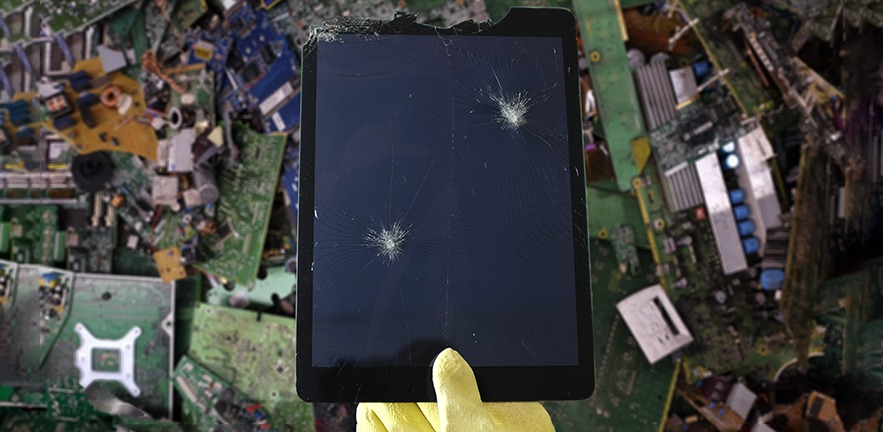Research on hazardous waste disposal by Cambridge Judge PhD candidate Sytske Wijnsma represents the University of Cambridge in this month’s Festival of Social Science.
Research on illegal hazardous waste disposal by Sytske Wijnsma, a PhD candidate and MPhil alumna at Cambridge Judge Business School, has been selected as a project to represent the University of Cambridge during this month’s Festival of Social Science, which showcases how social science research influences our economic, social and political lives.
A short film based on the research will be screened online on Thursday 18 November as one of three projects representing the University as part of the Cambridge Shorts project connecting researchers with creative professionals. The film is an animation created through collaboration between Sytske and London-based designer-animator Christine Hooper.
“Most of us have returned a phone or a laptop by now for recycling, but have you ever wondered whether recycling actually happens?” says a summary of the film.
“Regulators are continuously implementing and enforcing laws to keep harmful waste, including electronic waste (e-waste), in the formal recycling process. Yet, violations remain rampant. It is estimated that for e-waste alone around 70% is exported, predominantly from the EU and US, to developing countries for cheap disposal. This short film explains the system your electronics end up in, known as the reverse supply chain, and why proper recycling is not always the outcome.”
The project reflects research conducted by Sytske during her PhD studies that focuses on reducing the illegal disposal of electronic and other hazardous wastes through curbing violations and a circular economy model.
“Illegal or unwanted waste disposal methods such as dumping and export are prevalent in practice,” says a research paper co-authored by Sytske; Dr Dominique Lauga, Associate Professor in Marketing at Cambridge Judge; and L. Beril Toktay of Georgia Institute of Technology.
“Decentralised waste disposal chains, a common form of inter-business organisation in this sector, compound this problem as firms also have limited information available on the other waste chain partner, which creates complex interactions between firm behaviour and policy interventions,” says the paper, entitled “Treat, dump, or export? How domestic and international waste management policies shape waste chain outcomes”.
“Our analysis reveals that primarily focusing on penalising dumping by treatment operators can worsen waste chain outcomes. Solely focusing on penalising low-quality waste exports, a common intervention in practice, can also backfire. Instead, penalising manufacturers for downstream dumping should be given consideration.”


